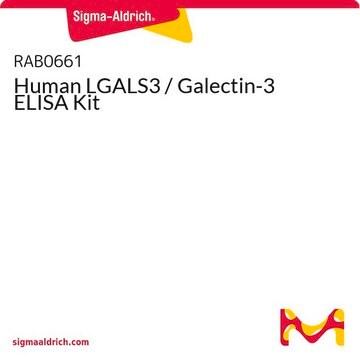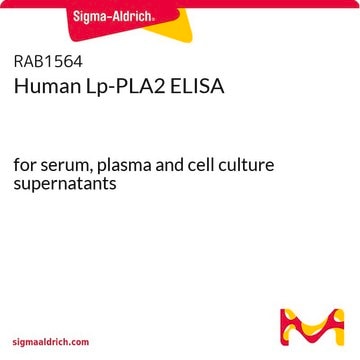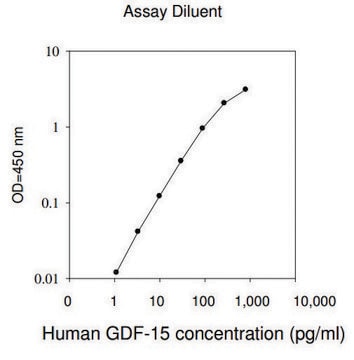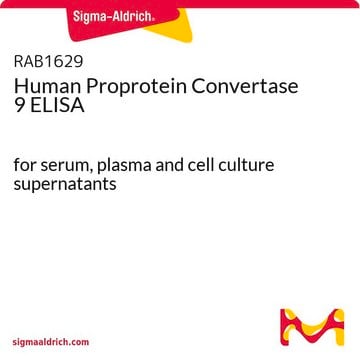RAB0707
Human LDLR / Low-density Lipoprotein Receptor ELISA Kit
Selecione um tamanho
R$ 3.289,00
Selecione um tamanho
About This Item
R$ 3.289,00
Produtos recomendados
reatividade de espécies
human
embalagem
kit of 96 wells (12 strips x 8 wells)
técnica(s)
ELISA: suitable
entrada
sample type cell culture supernatant(s)
sample type plasma
sample type serum
assay range
inter-assay cv: <12%
intra-assay cv: <10%
sensitivity: 8 pg/mL
standard curve range: 8.19-2000 pg/mL
método de detecção
colorimetric
Condições de expedição
wet ice
temperatura de armazenamento
−20°C
Informações sobre genes
human ... LDLR(3949)
Categorias relacionadas
Descrição geral
Aplicação
Please refer to the attached General ELISA KIT Procedure (sandwich, competitive & Indirect ELISA)
Ações bioquímicas/fisiológicas
Outras notas
Please type the word sample in the text box provided for lot number.
Palavra indicadora
Warning
Frases de perigo
Declarações de precaução
Classificações de perigo
Met. Corr. 1
Código de classe de armazenamento
8A - Combustible corrosive hazardous materials
Ponto de fulgor (°F)
Not applicable
Ponto de fulgor (°C)
Not applicable
Escolha uma das versões mais recentes:
Certificados de análise (COA)
Não está vendo a versão correta?
Se precisar de uma versão específica, você pode procurar um certificado específico pelo número do lote ou da remessa.
Já possui este produto?
Encontre a documentação dos produtos que você adquiriu recentemente na biblioteca de documentos.
Active Filters
Nossa equipe de cientistas tem experiência em todas as áreas de pesquisa, incluindo Life Sciences, ciência de materiais, síntese química, cromatografia, química analítica e muitas outras.
Entre em contato com a assistência técnica









